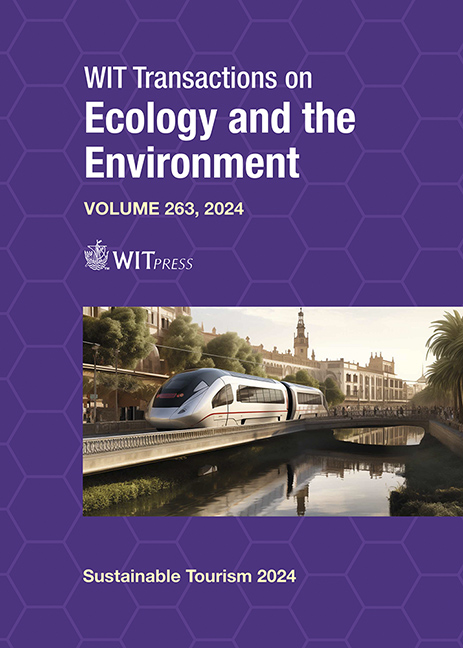SWOT ANALYSIS FOR THE DEVELOPMENT OF STRATEGIES TO DESIGN SUSTAINABLE TOURISM INDICATORS IN GALAPAGOS, ECUADOR
Price
Free (open access)
Transaction
Volume
263
Pages
14
Page Range
93 - 106
Published
2024
Paper DOI
10.2495/ST240081
Copyright
Author(s)
LADY SOTO-NAVARRETE, ÓSCAR SALADIÉ, MARÍA JAYA-MONTALVO, MARIBEL AGUILAR-AGUILAR, PAÚL CARRIÓN-MERO
Abstract
Sustainable tourism provides social, environmental and economic benefits and is vital in natural areas. The Galapagos Islands represent a natural environment that integrates unique species of flora and fauna. The tourist growth of the islands, in addition to their fragility and vulnerability to anthropic activities, requires sustainable tourism approaches that promote ecological and social balance. This study aims to propose strategies for the development of sustainable tourism indicators by integrating a strengths, weaknesses, opportunities, and threats (SWOT) analysis based on the perception of key actors, such as municipal authorities, the community, academia and tourists in general, related to tourism and the environment. The methodological process addressed three main phases: (i) integration and analysis of tourism data; (ii) definition of questionnaires and key actors; and (iii) design of strategies to formulate sustainable tourism indicators. In general, SWOT analysis allowed us to define strategies aligned with three main aspects: (i) strengthening public policies and territorial planning; (ii) sustainable management of natural and geological heritage; and (iii) integration of academia to design environmentally and economically sustainable tourism strategies. This research provides tools for the use of strategies based on ecological, economic, and sociocultural criteria for decision-makers and short- and long-term tourism planning.
Keywords
environmental conservation, tourism management, sustainable development, management strategies, innovation in destinations





